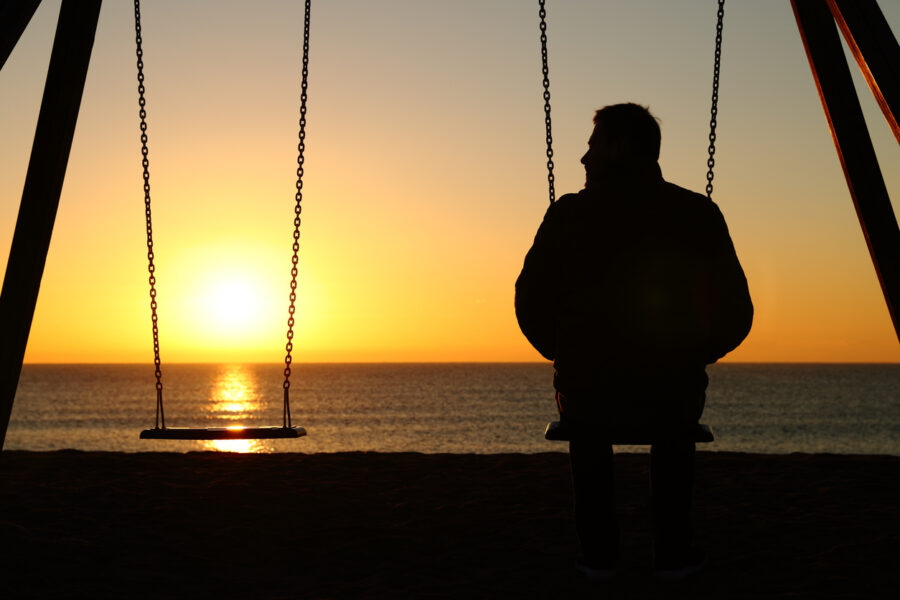Abortion is an Issue for Men, Too
Deeply rooted emotions and guilt plague many men after their girlfriends turn to abortion.

When it comes to abortion, men are usually told to mind their own business. Not their body, not their choice, says the progressive left (unless the men are there to march in support of abortion, of course).
Sympathy and empathy for men who have experienced a partner’s abortion are in short circulation, but a new study shows that post-abortion men are suffering without a lifeline.
Suffering Without a Lifeline
The National Men’s Abortion Study, published by the non-partisan organization Support After Abortion, found that the majority of men experienced some negative impact from their abortion experiences, including depression, anxiety, and anger.
Furthermore, 83 percent (whether pro-life or pro-abortion) said they would benefit from support or counseling. And more than half of those surveyed said they have searched for help to deal with the emotional impact but often don’t know where to look.
In another report, abortion researcher Jennifer Reich writes that “many men report a profound experience associated with the abortion of a fetus they co-conceived,” and other studies highlight adverse effects like anger, grief, and anxiety.
Few sins rival the shame one may feel over an abortion, making it difficult to admit in a faith-based space. However, this is precisely the place for it.
It makes sense when you consider miscarriage. Aaron Gouveia’s book Men and Miscarriage speaks to the male perspective when a partner loses their child. Gouveia writes that though women may experience a more profound pain, men “need to move out of the shadows.”
For many men, abortion is no different. It is the loss of a child and the experience of fatherhood. Most would agree that men deserve to process the trauma of a miscarriage in a healthy way. They should also be able to do so when it comes to abortion.
Silent Shame
One man I know, whose previous girlfriend had an abortion when they were young, keeps a faded ultrasound image folded in his wallet. He agreed to the abortion at the time, but he’ll never forget it.
Writer and pastor Steve Arterburn spoke about the “silent shame” of having paid for his girlfriend to have an abortion in high school. “There was no funeral, no way to grieve, no one I could talk to,” said Arterburn. “I ended up with 80 ulcers just eating me to death.”
Post-Abortion Stress Syndrome is a real phenomenon, but societally hushed due to pro-abortion narratives pushed by media, activists, and politicians. That neither men nor women feel comfortable grieving publicly compounds the issue.
Please Support The Stream: Equipping Christians to Think Clearly About the Political, Economic, and Moral Issues of Our Day.
Just recently, a TikTok went viral of a woman who said of her abortion, “It’s probably been a month, and I hate myself every day.” Such admissions are rare. Pro-abortion individuals hesitate to share their abortion grief, regrets, or pain because they don’t want to endanger the “choice” for others. Unfortunately, this self-imposed “gag rule” creates an emotional infection that — like all unresolved psychological issues — cannot heal.
We’re talking about 1 in 5 men here, according to The National Survey of Family Growth. Men who are made to feel that their grief isn’t appropriate — despite the fact they may have had no choice in the matter. In one survey, 67 percent of men who experienced abortions said they viewed abortion as wholly their partner’s choice. Thus, men likely feel powerless and excluded, resulting in unresolved, unacknowledged, and deeply rooted emotions.
A Place for Grace
Where can a man safely process his feelings in a society that classifies abortion decisions as nothing more than a “woman’s bodily autonomy”? Where does a man fit into that paradigm? He doesn’t. Many abortion advocates are determined to keep it that way.
A CareNet study found that half of men say they were attending church at least once a month at the time of a partner’s abortion, and only five percent of those spoke with anyone at church about it. The church has a long way to go regarding ministering to those facing an unplanned pregnancy or living through the aftermath of an abortion.
As Christians, we know that abortion is wrong, but we also know that the trauma of a post-abortion experience requires space and healing. The local church should recognize the significant number of both men and women in this situation. We must articulate that the church is a welcome space for conversation, vulnerability, prayer, biblical counseling, healing, and redemption.
Few sins rival the shame one may feel over an abortion, making it difficult to admit in a faith-based space. However, this is precisely the place for it. God’s ultimate grace, which the world can never offer, is the only way to find peace. It’s time to dignify both women and men living through the grief and trauma of abortion and remind them they are still eternally loved and forgiven — if they cry out to Christ in repentance.
Ericka Andersen is a freelance writer and mother of two living in Indianapolis. She is the author of Leaving Cloud 9 and Reason to Return: Why Women Need the Church & the Church Needs Women. Ericka hosts the Worth Your Time podcast. She has been published in The Wall Street Journal, The New York Times, Christianity Today, USA Today, and more.
Originally published at wng.org. Reprinted with permission.







